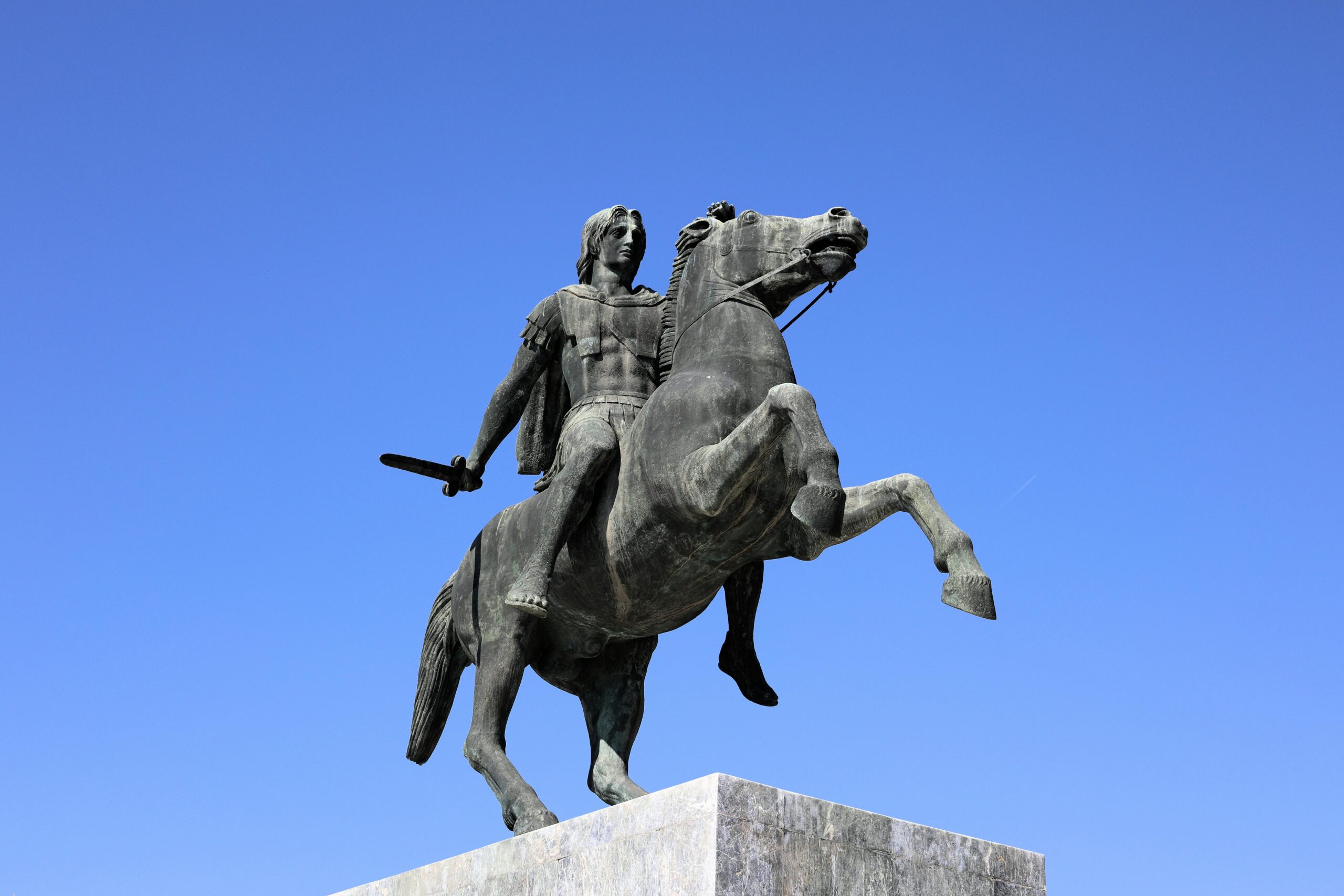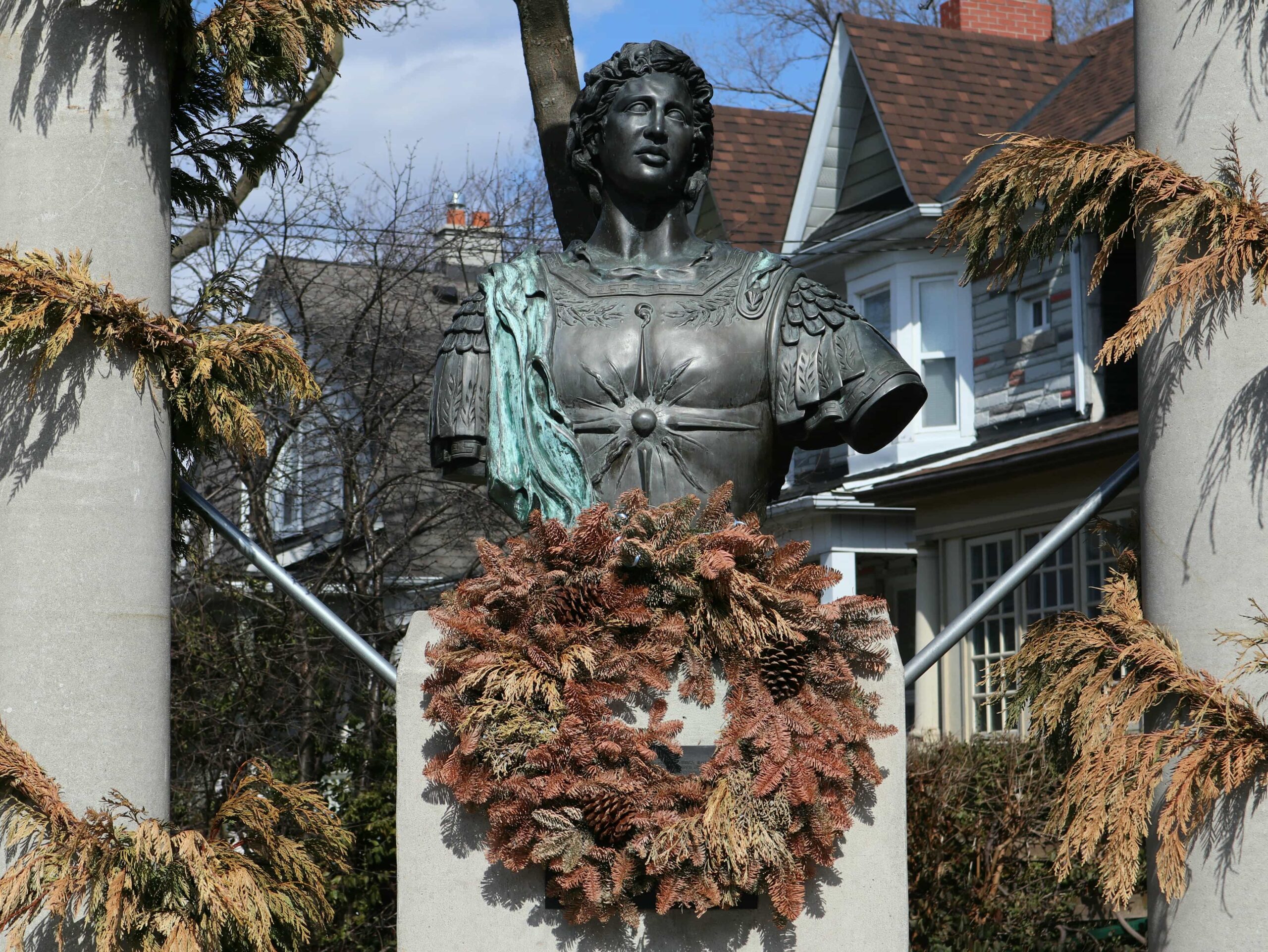Alexander the Great: The Complete Biography That Changed World History
Honestly, I’ve spent years studying ancient rulers, but Alexander never stops fascinating me. Here’s what strikes me most—this Macedonian prince conquered most of the known world before his 33rd birthday. 1 Think about that for a moment. At an age when many of us are just figuring out our careers, he had already reshaped three continents and created one of history’s most enduring legacies.
What really gets me about Alexander is how he defies simple categorization. Was he a visionary leader or a ruthless conqueror? A cultural bridge-builder or an imperialistic destroyer? Actually, thinking about it more deeply—he was probably all of these things. That’s what makes his biography so compelling and complex.
The Making of a Conqueror: Early Life and Education
Born in 356 BCE in Pella, Macedonia, Alexander entered a world already shaped by his father’s ambitions. 2 Philip II had transformed Macedonia from a backwater kingdom into a formidable military power, but—and here’s where it gets interesting—young Alexander seemed destined for something far greater.
His mother Olympias was absolutely fascinating, by the way. She was an Epirote princess who practiced mystery religions and claimed divine ancestry. 3 I’ve always wondered how much her mystical influence shaped Alexander’s later conviction that he was descended from Achilles and, eventually, that he himself was divine.
Key Insight: The Aristotle Connection
Here’s something that really strikes me—Philip II hired Aristotle as Alexander’s tutor when the prince was just 13. 4 Imagine having one of history’s greatest philosophers as your personal teacher during your formative years. This wasn’t just about learning rhetoric or mathematics; Aristotle instilled in Alexander a genuine curiosity about the world, from biology to politics to ethics.
The educational partnership lasted three years, and honestly? It shows in everything Alexander did later. His campaigns weren’t just military expeditions—they were massive scientific and cultural exploration projects. He brought along botanists, historians, geographers, and philosophers. 5 That’s Aristotle’s influence right there.
But here’s what’s really interesting about Alexander’s youth—he wasn’t just bookish. At 16, while Philip was campaigning, Alexander crushed a Thracian revolt and founded his first city. 6 The kid was already showing that rare combination of intellectual depth and practical leadership.
I often think about the psychological impact of growing up in Philip’s shadow. The man had revolutionized warfare with his innovative phalanx formations and siege techniques, conquered most of Greece, and was planning to invade Persia. 7 How do you measure up to that? Actually, let me rephrase—how do you surpass that? Because that’s clearly what Alexander set out to do.
From King to Conqueror: The Revolutionary Military Campaigns
In 336 BCE, everything changed. Philip II was assassinated at his daughter’s wedding—a political murder that remains controversial to this day. 8 Alexander, barely 20 years old, suddenly found himself king of a volatile kingdom surrounded by enemies. What happened next still gives me chills when I think about it.
Most rulers would have focused on consolidating power. Alexander? He basically said, “Hold my wine” and proceeded to secure Macedonia, crush Greek rebellions, and then—this is the audacious part—launch the most ambitious military campaign in ancient history. 9
“There is nothing impossible to him who will try.”
You know what really impresses me about Alexander’s early campaigns? His speed. After Philip’s death, several Greek city-states thought they could break free from Macedonian control. Alexander marched south so quickly that Thebes barely had time to prepare. 10 When the city resisted, he made an example that sent shockwaves across Greece—Thebes was completely destroyed, its population enslaved.
Harsh? Absolutely. But strategically brilliant—no other Greek city dared rebel after that. Sometimes I wonder if Alexander already had the Persian invasion planned and simply couldn’t afford instability at home. The speed and decisiveness suggest someone thinking several moves ahead.
The Persian Invasion: Strategic Genius Meets Tactical Innovation
In 334 BCE, Alexander crossed the Hellespont with approximately 35,000 men. 11 What strikes me most about this moment isn’t the size of his army—it’s the audacity. He was invading the largest empire the world had ever seen, with a kingdom that was basically broke from Philip’s military expenditures.
The Battle of Granicus was Alexander’s first major test against Persian forces. Here’s where you start to see his tactical genius emerge. 12 Traditional commanders stayed safely behind their armies. Alexander? He personally led the cavalry charge across a river under enemy fire. Crazy? Maybe. Inspirational to his troops? Absolutely.
Military Innovation That Changed Warfare
- Combined-arms tactics integrating infantry, cavalry, and siege engines 13
- Adaptive siege warfare techniques for different geographical conditions
- Use of local intelligence and cultural advisors in conquered territories
- Revolutionary supply chain management for extended campaigns
Then came Issus in 333 BCE—honestly, this battle still amazes military historians. 14 Darius III, the Persian king, personally commanded a massive army, probably outnumbering Alexander’s forces three to one. The terrain favored the Persians, they had the defensive position, and they had war chariots.
Alexander’s response? He identified the weak point in the Persian line, personally led a wedge formation straight at Darius, and turned what should have been a defensive battle into an aggressive assault. 15 Darius fled, abandoning his family and treasury. I’ve read accounts of this battle dozens of times, and it never stops being impressive.
But here’s what really gets me thinking—after Issus, Alexander could have negotiated. Darius offered him half the Persian Empire and marriage to his daughter. 16 Any rational ruler would have considered it. Alexander’s response? “There cannot be two suns in the sky.” That quote tells you everything about his psychology and ambition.

Beyond Conquest: Cultural Transformation and Personal Evolution
Here’s where Alexander’s story becomes really fascinating—and complicated. After conquering most of the Persian Empire, something interesting started happening. The young Macedonian king began adopting Persian customs, marrying Persian nobility, and encouraging cultural fusion. 17 His own Macedonian generals were not happy about this.
I’ve always found this period of his life intriguing because it shows Alexander grappling with the practical challenges of ruling a multicultural empire. You can’t just impose Greek culture on millions of Persians, Egyptians, and Indians. What strikes me is how he seemed to genuinely understand this—or maybe he was just pragmatic enough to adapt.
| Region Conquered | Year | Cultural Integration Strategy | Long-term Impact |
|---|---|---|---|
| Egypt | 332 BCE | Respected local deities, founded Alexandria 18 | Ptolemaic Kingdom lasted 300+ years |
| Persia | 330 BCE | Adopted Persian court customs, married nobility | Hellenistic-Persian fusion culture |
| India | 326 BCE | Respected local rulers, studied philosophy | Indo-Greek kingdoms in Gandhara |
The visit to the Oracle of Ammon in Egypt particularly intrigues me. 19 Alexander emerged claiming divine parentage—specifically, that he was the son of Zeus-Ammon. Now, was this genuine religious conviction, or brilliant political theater? I lean toward thinking it was probably both. He needed divine legitimacy to rule diverse populations, but his behavior suggests he may have genuinely believed it.
“I am indebted to my father for living, but to my teacher for living well.”
Here’s something that really strikes me about Alexander’s later campaigns—the psychological transformation. The young king who crossed into Asia was confident but still recognizably Macedonian. By the time he reached India, he was something else entirely. 20 He dressed like a Persian king, demanded prostration from visitors, and seemed to genuinely believe in his own divinity.
This created serious tensions with his Macedonian troops. The famous mutiny at the Hyphasis River in India wasn’t just about being tired—it was about not recognizing their king anymore. 21 These were men who had followed him across the world, but they drew the line at what they saw as his transformation into an oriental despot.
The Vision of Cultural Fusion
What really fascinates me is Alexander’s apparent vision for his empire. The mass wedding at Susa in 324 BCE, where he married thousands of his soldiers to Persian women, wasn’t just political theater—it was social engineering on an unprecedented scale. 22 He was literally trying to create a new kind of multicultural ruling class.
Did it work? Well, that’s complicated. In the short term, many of these marriages dissolved after Alexander’s death. But the long-term cultural impact was enormous. 23 The Hellenistic kingdoms that emerged from his empire represented a genuine fusion of Greek, Persian, Egyptian, and Indian elements that influenced art, philosophy, and religion for centuries.
I often wonder what would have happened if Alexander had lived longer. Would his cultural fusion policies have created a stable, multicultural empire? Or would the tensions between Greek and Persian elements have eventually torn it apart anyway? These are the questions that keep ancient historians up at night.
The End of an Era: Death, Succession, and Enduring Legacy
June 323 BCE, Babylon. Alexander the Great died at 32, and honestly? The circumstances remain one of history’s great mysteries. 24 Was it malaria? Typhoid fever? Poison? I’ve read every theory, and the truth is we’ll probably never know for certain. What we do know is that his death created an immediate power vacuum that his generals couldn’t fill.
The famous story about his final words haunts me. When asked who should inherit his empire, Alexander supposedly replied, “The strongest.” 25 Whether true or not, it perfectly captures the problem—he had created something too vast and complex for any single successor to maintain.
Macedonia Today: Archaeological Discoveries
Modern North Macedonia continues to reveal Alexander’s legacy through archaeology. Recent excavations at Pella, his birthplace, have uncovered stunning mosaics and palace remains that give us unprecedented insights into Macedonian royal life. The tomb of Philip II at Vergina, discovered in 1977, contains artifacts that directly connect us to Alexander’s family history. 26
What really strikes me about Alexander’s immediate legacy is how quickly his empire fragmented. Within a generation, his generals—the Diadochi—had carved it up into separate kingdoms. 27 The Ptolemies took Egypt, the Seleucids controlled most of Asia, Antigonus held Macedonia. None of them could recreate what Alexander had achieved.
But here’s the thing—maybe that was inevitable. Alexander’s conquests were personal achievements tied to his charisma and military genius. Without him, the centrifugal forces of such a diverse empire naturally reasserted themselves. Actually, thinking about it differently, perhaps the real miracle isn’t that it broke apart, but that one person managed to hold it together at all.
Historical Assessment and Modern Understanding
How do we evaluate Alexander today? It’s complicated, and I find myself changing my assessment as I learn more. He was undeniably a military genius—his tactical innovations influenced warfare for centuries. 28 He was also a cultural catalyst whose conquests created the Hellenistic world that shaped Roman civilization and, ultimately, our own.
On the other hand, his campaigns caused enormous destruction and loss of life. Modern estimates suggest his wars may have resulted in over a million deaths. 29 The Persian Empire he destroyed had been relatively stable and prosperous. Were his achievements worth the human cost? That’s a question each person has to answer for themselves.
Alexander’s Enduring Influence
- Military tactics still studied in modern war colleges 30
- Cultural fusion model for multicultural societies
- Foundation of cities that remain major centers today
- Preservation and transmission of Greek philosophy eastward
What fascinates me most is how different cultures remember Alexander. To Greeks, he’s the great hero who spread Hellenic civilization. To Persians, he’s often remembered as “Alexander the Accursed” who destroyed their ancient empire. 31 In India, the Alexander Romance depicts him as a philosopher-king seeking wisdom. Each culture has shaped his memory to fit their own values and experiences.
Recent archaeological discoveries continue to complicate our understanding. The city of Alexandria Eschate in Tajikistan, excavations at Ai-Khanoum in Afghanistan, new findings from Egypt—each discovery adds nuance to our picture of how Alexander’s policies actually played out in different regions. 32
Looking back on everything I’ve studied about Alexander, what strikes me most is his fundamental modernity. He faced challenges that still resonate today: how to govern diverse populations, how to balance cultural preservation with integration, how to project power across vast distances. His solutions weren’t always successful, but his willingness to experiment and adapt remains remarkable.
Alexander the Great died over 2,300 years ago, yet we’re still debating his legacy. That alone testifies to the magnitude of his impact on world history. Whether you see him as a visionary leader or a destructive conqueror—or like me, a complex figure who was both—his biography remains one of the most compelling stories ever recorded.
References and Further Reading



